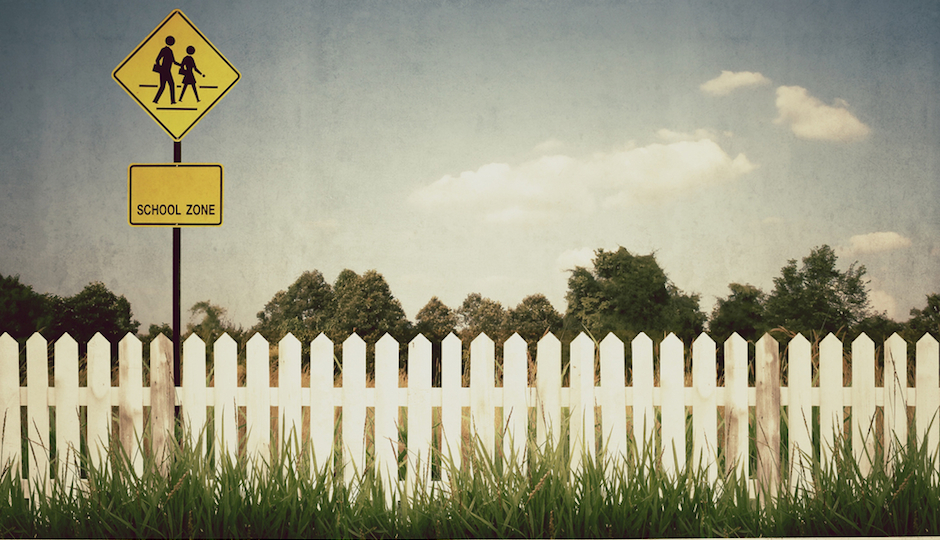Are Suburban Schools Immoral?

Shutterstock.com
Quick question on the first day of kindergarten in Philly public schools: Is it actually immoral to take your kid and flee the city for suburban schools?
Silly question, right? After all, city families have been fleeing to the ’burbs (or to private schools) for decades. We don’t really blink at the process, because of course the right answer to the question is to do whatever it takes to get your child the best education possible.
Right?
But maybe there’s an alternative argument.
Maybe, when you flee Philadelphia, you rob the city’s already oxygen-starved schools of needed resources. Not just money — though surely there’s a bit of that. You’re also robbing the schools of a parent (or parents) who cares enough about your child’s education to do something about it. And that’s a resource that Philly schools could always use more of.
The decision to leave town, in other words, might be the very proof that you’re needed to stay.
I wouldn’t ask this question, except that City Paper’s Dan Denvir stepped forward last week to challenge the usual consensus on the topic, urging Philadelphia families to “stay and fight for Philadelphia schools.” He quoted one holdout saying, “a high-quality neighborhood school … is fundamental to the future success of our city and the young people that are growing up here.”
Nobody really disagrees with that. My colleague Patrick Kerkstra wrote earlier this year about decamping to the suburbs in the face of “the crummy state of the city’s public schools” — especially understandable since his family had special needs to consider — while worrying that “underperforming schools will sabotage and slow Philadelphia’s tenuous resurgence.”
Philadelphia’s future greatness depends on great schools. But do great schools depend on you and your family?
Let’s first of all admit that there’s often a racial component involved: Mostly it’s white kids leaving and black kids staying, though there are exceptions. (Whites make up 36 percent of the city’s population, but just 14.4 percent of the students in public schools.) We’re voluntarily and aggressively desegregating our schools, and that makes a difference: A study earlier this year showed that African Americans who attended integrated schools — and their greater access to resources — “were more likely to graduate, go on to college, and earn a degree than black Americans who attended segregated schools.” They were healthier, less likely to have been jailed, and made more money than segregated blacks.
Sounds nice, but who wants to sacrifice their own child’s well-being to help achieve that result? Maybe it’s not as much a sacrifice as you imagine: The study also found “white students in integrated schools did just as well academically as those in segregated schools.”
If more Philadelphia families would stay, it seems, Philadelphia schools would probably get better. Conversely: Leaving makes it that much harder for the schools to improve, and for all your former neighbors to improve their lives.
Here is a good spot to mention that last year, Slate writer Allison Benedikt caused an uproar with her provocatively titled essay, “If You Send Your Kid to a Private School, You Are a Bad Person.”
Her rationale: “Everyone needs to be invested in our public schools in order for them to get better. Not just lip-service investment, or property tax investment, but real flesh-and-blood-offspring investment. Your local school stinks but you don’t send your child there? Then its badness is just something you deplore in the abstract. Your local school stinks and you do send your child there? I bet you are going to do everything within your power to make it better.”
It’s fair to say Benedikt’s jeremiad was not well-received. “Am I really supposed to believe that the experience of sending my kids along with the herd into ignorance when something better and higher is available to them either from private, parochial, or homeschool, is morally preferable?” Rod Dreher asked at The American Conservative.
So what’s the answer to the original question?
The first, most sacred duty of a parent is to the well-being of your child — is to ensure their safety in the here and now, but also to prepare them for adulthood. For most of us, that will mean what it has always meant — putting our children in the best available schools, hope they go to the best possible college, then go on to successful lives.
But the best lessons aren’t always learned in the classrooms, ironically enough. And for parents who choose to stay and fight, they’ll be teaching their children something, too, about living one’s values in the face of adversity. That lesson might not get your kid into Yale, but it should have some value nonetheless.
So. Go if you must. Stay if you can. (Neither side should judge the other: Raising kids is too tricky and fraught.) And in either case: Keep fighting for Philly public schools.
Follow @JoelMMathis on Twitter.


